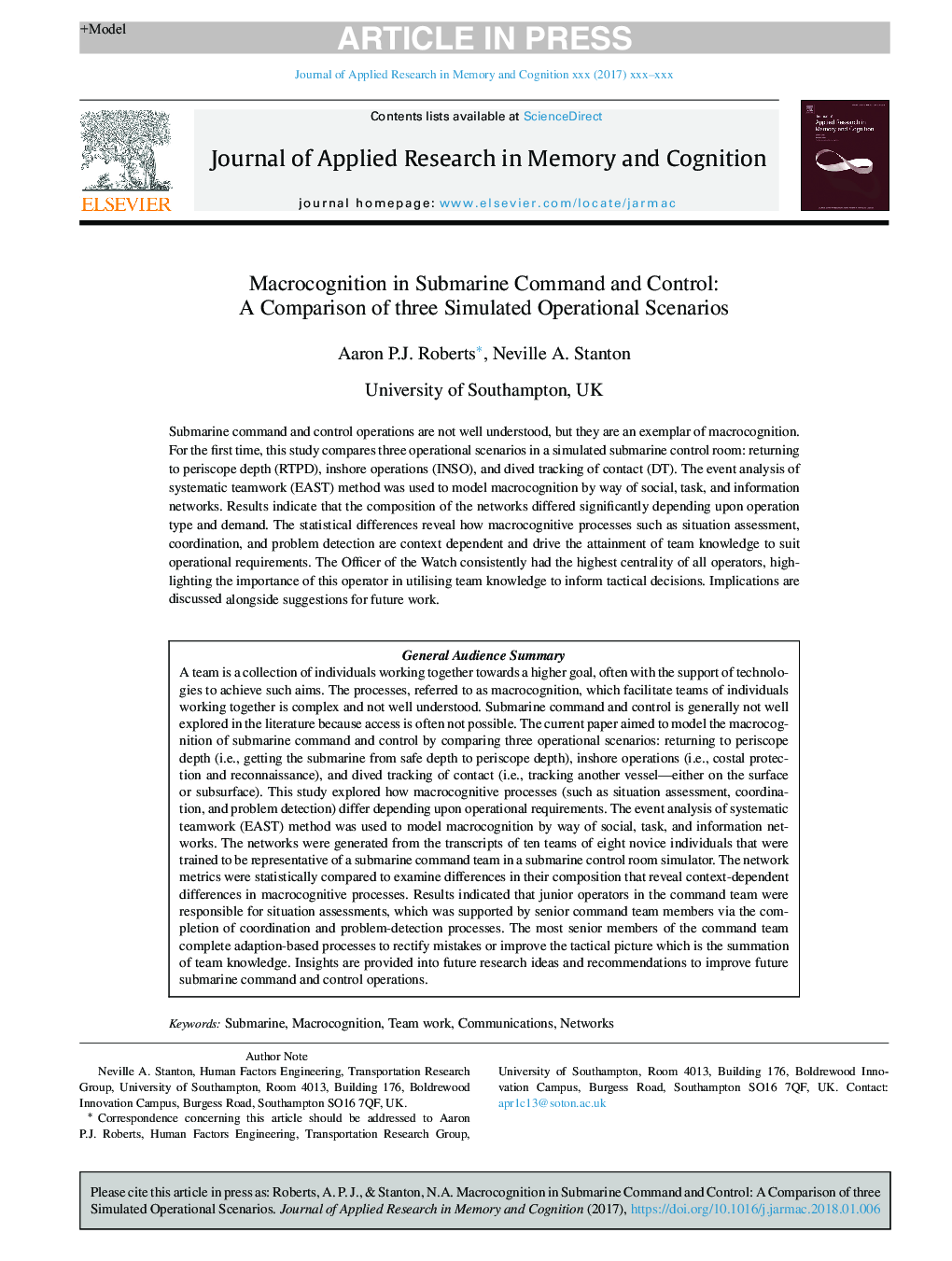| Article ID | Journal | Published Year | Pages | File Type |
|---|---|---|---|---|
| 7241715 | Journal of Applied Research in Memory and Cognition | 2018 | 14 Pages |
Abstract
Submarine command and control operations are not well understood, but they are an exemplar of macrocognition. For the first time, this study compares three operational scenarios in a simulated submarine control room: returning to periscope depth (RTPD), inshore operations (INSO), and dived tracking of contact (DT). The event analysis of systematic teamwork (EAST) method was used to model macrocognition by way of social, task, and information networks. Results indicate that the composition of the networks differed significantly depending upon operation type and demand. The statistical differences reveal how macrocognitive processes such as situation assessment, coordination, and problem detection are context dependent and drive the attainment of team knowledge to suit operational requirements. The Officer of the Watch consistently had the highest centrality of all operators, highlighting the importance of this operator in utilising team knowledge to inform tactical decisions. Implications are discussed alongside suggestions for future work.
Related Topics
Social Sciences and Humanities
Psychology
Applied Psychology
Authors
Aaron P.J. Roberts, Neville A. Stanton,
